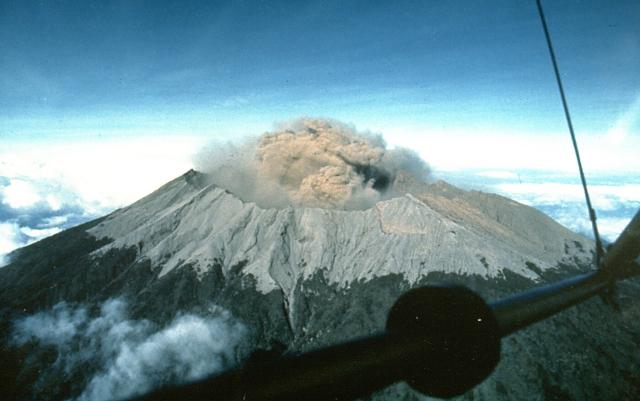
JAKARTA, Indonesia — Ash spewing from a volcano on Indonesia’s main island of Java sparked chaos for holidaymakers as airports closed and international airlines cancelled flights to tourist hotspot Bali, stranding thousands.
Bali’s Ngurah Rai airport reopened Saturday morning, while two airports on Java island were still closed. Another airport, on Lombok island, reopened late Friday.
Mount Raung in East Java province, about 150 kilometres (95 miles) from Bali’s international airport, has been rumbling for several weeks. The level of activity increased in the past week and on Friday it blasted ash and debris 3,800 metres (12,460 feet) into the air.
Government volcanologist Gede Suantika said the eruption forced authorities to close five airports due to the risks posed by volcanic ash. The Transport Ministry told airlines to avoid routes near the mountain. It said a decision about reopening other airports would be made later Friday.
Suantika said lava and ash fall from the 3,332-meter (10,930-feet) -high mountain on Indonesia’s most densely populated island also caused the government to urge people to stay away from a 3-kilometre (2-mile) -high danger zone around the volcano.
The evacuation of residents living near the volcano was still considered unnecessary, but authorities were urging people to wear masks.
Volcanic eruptions can cause significant and lengthy disruption to travel. A 2010 eruption of Iceland’s Eyjafjallajokul volcano produced an ash cloud that caused a week of international aviation chaos, with more than 100,000 flights cancelled.
“Ash can clog engines and harm other parts of the aircraft,” Barata said. He added that thousands of travellers were stranded when flights within Indonesia were already overbooked as tens of millions of the country’s Muslims pour out of major cities to return to return to their villages during an annual mass exodus to celebrate the end of the Islamic holy month of Ramadan.
The volcano has proven particularly problematic for Australians, who flock to Bali during Australia’s school holidays.
Dozens of flights between Australia and Bali’s airport by Australian carriers Jetstar and Virgin Australia have been cancelled over the past week, with the airlines citing safety concerns.
Both carriers said they are looking into adding extra flights between Australia and Bali when conditions improve to help clear the backlog.
At Bali’s international airport, many travellers arrived not knowing about the eruption and flight cancellations. The airport blocked access to ticket counters, adding to the confusion.
Some tourists slept on benches or stood at flight information boards filled with “postponed” and “delayed” notifications. Others complained of a lack of information about their delayed flights.
“The airline can’t tell us if we’re going to be here tonight or fly tomorrow or the next day,” said Charmaine Scott, an Australian holidaymaker. “This is really difficult for us. We have to basically find some way to stay.”
She said that she and her husband hadn’t heard about the eruption and flight cancellations until they arrived at the airport on Friday morning.
The airport’s closure affected 160 domestic flights and 117 international ones to and from Bali, said Trikora Rahardjo, general manager of Ngurah Rai airport.
“Preparations are underway, and hopefully the international flights will be resumed at around 2 p.m. (0600 GMT),” Rahardjo said Saturday.
Raung is among about 130 active volcanoes in Indonesia. The archipelago is prone to volcanic eruptions and earthquakes because of its location on the Pacific “Ring of Fire,” a series of fault lines stretching from the Western Hemisphere through Japan and Southeast Asia.
Another Indonesian volcano, Mount Sinabung in Sumatra, has been erupting for two months, forcing the evacuation of more than 10,000 people.
Associated Press writers Kristen Gelineau in Sydney and Ali Kotarumalos in Jakarta contributed to this report.